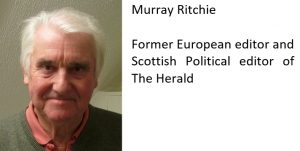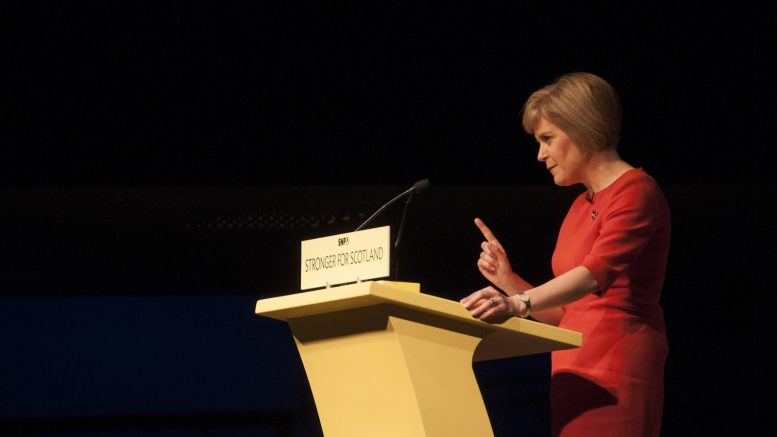If you think Brexit complicated British politics, try living in Scotland.
Those Scots who favour independence – 45 per cent of us, including me in 2014 – thought our time had come when David Dimbleby announced “we’re out” of the EU.
We are fairly good Europeans in Scotland, where 62 per cent of us voted last September to remain so. And we had been told in no uncertain terms during our independence referendum that the only way we could be guaranteed continued EU citizenship was to remain part of the UK.
Why? Because untrustworthy types like the Spanish, with their secessionist troublemakers, would veto our continued European Union membership if we voted for independence.
What we did not expect then was that we would be dragged out of the EU on the back of English votes. Like Prime Minister David Cameron we assumed the Remainers would walk it.
So, while many voters in England and Wales discovered the meaning of Regrexit, we in Scotland simply shrugged and reminded ourselves that we had an escape route. All we had to do was wait for the First Minister, Nicola Sturgeon, to call indyref2 and we would be welcomed back to Brussels with open arms.
Well, it hasn’t worked out like that. First, the polls show that support for independence has not increased significantly since Brexit (although it has not fallen either). Indeed, Brexit might just not happen if some people in high places in England get their way. At least not a hard Brexit. If there was a special deal for Scotland (still a possibility until a final decision otherwise) the independence cause would not be helped.
Second, Ms Sturgeon knows better than silly Mr Cameron that you should never call a referendum until you know you are sure to win it. And, despite all the hostile mutterings from Unionists about neverendums in Scotland until the SNP get the result they want, it is widely understood that if the Scots voted ‘No’ to independence a second time that would probably settle matters for a generation.
So, while England frets about how Brexit will play out, we in Scotland cannot but conflate it with indyref2 and an end to the union with England. Two other issues complicate matters further.
One, it is thought that about a third of Scottish National Party voters favoured Brexit. They see no point in throwing off the constitutional shackles of Westminster only to swap them for those of Brussels. When Remainers like me who favour independence point out that I quite fancy Scotland being as independent as France or Spain in the EU, I never quite get a coherent answer. But that’s just another debate looming in Scotland as the likelihood of indyref2 grows stronger.
Second, the SNP no longer enjoys a majority in Holyrood where Labour has collapsed and the Tories are now the second force, albeit by a distance. So successful has been the SNP in recent times that it is hard for even the most optimistic independista to see the party making further electoral progress. From such a lofty peak of popularity it surely has only one way to travel from now on – and that is not upwards.
The one encouraging sign for those seeking indyref2 when the time is right is the Scottish Parliament’s current majority for independence. Sometimes it is forgotten that you don’t have to be an SNP supporter to favour independence. Greens, socialists and up to 40 per cent of Labour voters in Scotland and a significant number of LibDems also back independence.
So, while Brexit has muddied the political waters in Scotland, it has also helped to hasten indyref2. The betting surely must be that Nicola Sturgeon will call it before time runs out along with parliamentary support for independence – or when it becomes clear that life in the UK outside the EU is less comfortable for Scotland than a recovered place among our fellow Europeans.
It used to be said that devolution was a process, not an event. The same goes for independence. Nicola Sturgeon is now working her way through the process of looking at all the options presented by Brexit before, almost inevitably, rejecting them in favour of independence. That way she will claim she has examined all the possibilities, including trying to block Brexit for Scotland, and found none of them more attractive than independence. Brexit has merely set that process in train but this time with some urgency.
By Murray Ritchie





